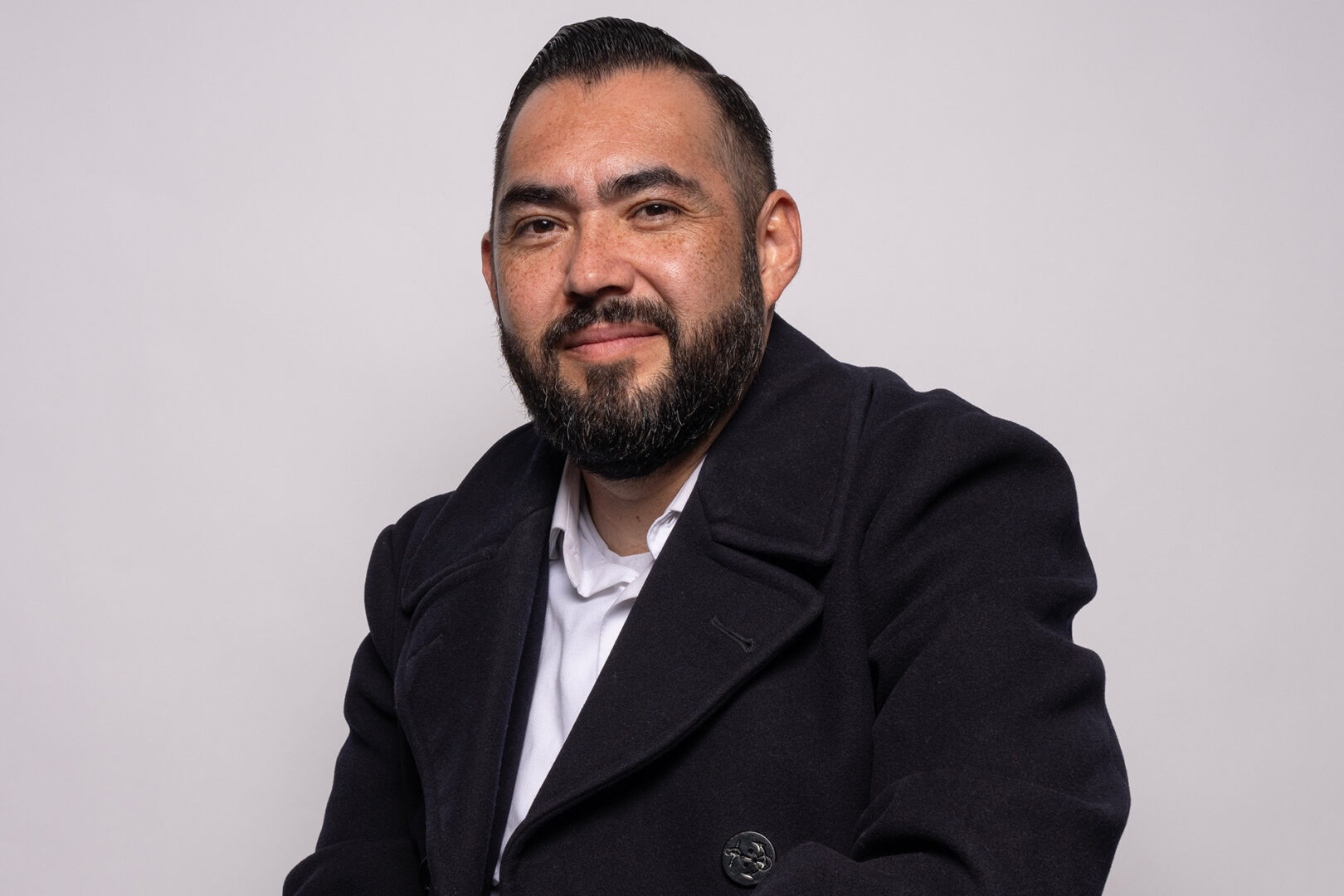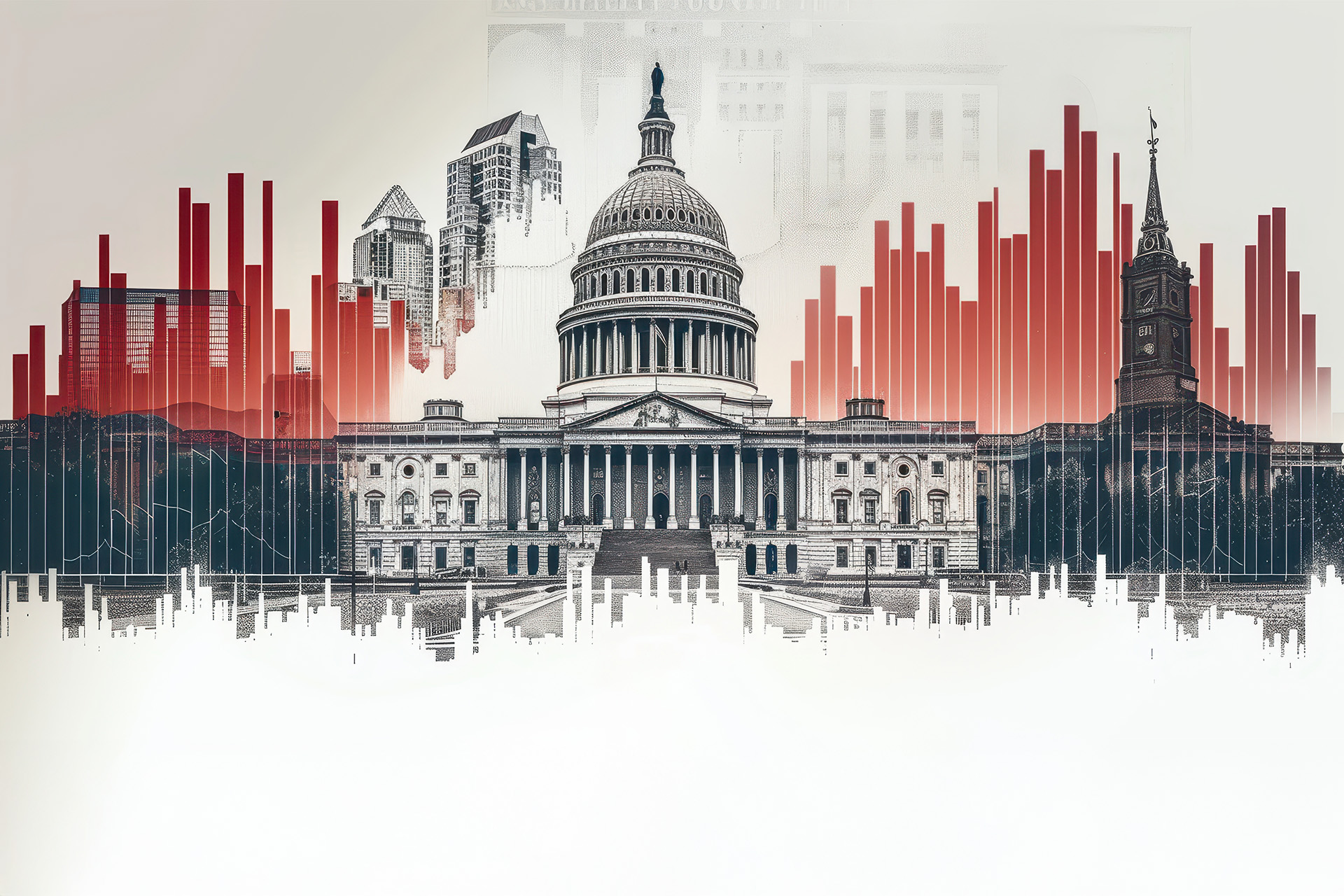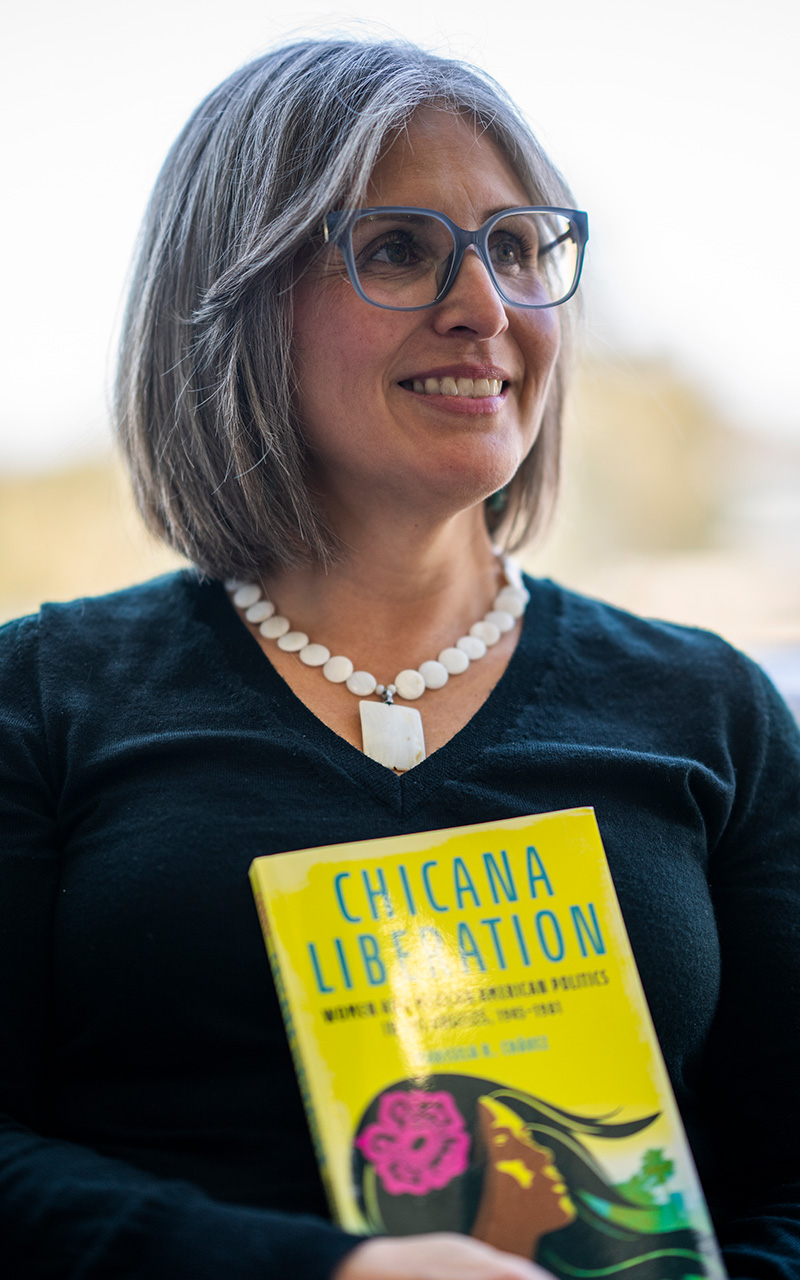Making Sense of Latino Support for Trump
by Lilly McKibbin
Bad hombres. Drug dealers. Rapists. Animals. Donald Trump’s insults toward immigrants, and particularly toward Mexicans, have made headlines since 2016. It’s not just his words, either. His first administration built a wall along miles of the U.S.-Mexico border, separated detained migrant children from their parents, and attempted to end the DACA Program for undocumented children. But over the last three presidential elections, he has only grown in popularity with Latino voters. Why?
Assistant Professor of Labor Studies Alfredo Carlos has a few ideas. As an expert in political science, economic democracy, and Chicano/a social movements, Carlos views the phenomenon through an intersectional lens.
“You can’t talk about Latinos and brown people in the U.S. without also dealing with economic questions,” he says. “The Latino experience is largely working-class. That can be a bigger voting indicator than someone’s race or ethnicity.”
Carlos is studying Latino voters’ relationship with President Trump’s movement, paying special interest to those who voted for Bernie Sanders in 2016, then for Trump in 2024. Did they have an ideological shift to the right? Or do they feel abandoned by the Democratic Party? His hunch is the latter.
“Cost of living is rising, and their salaries aren’t keeping up,” he says. “They aren’t being spoken to. Then here comes Trump, a master at making people feel things and believe in him.”
Carlos’ research also builds upon his first book, The Latino Question: Politics, Laboring Classes, and the Next Left, published in 2018. He and his co-authors are working on an updated edition incorporating the 2020 and 2024 elections, but Carlos is anticipating more dramatic political shifts within the near future.
He is paying close attention to the current Trump administration and the dizzying speed of executive orders targeting deportations, detention, and citizenship. In addition to addressing these issues through his scholarship, he is on the advisory board of ORALE, a Long Beach-based immigrant rights organization. He hosts “know your rights” workshops for undocumented people when asked and is a vocal supporter of amnesty. Growing up in the Harbor area of L.A. as the proud son of a working-class, immigrant family, Carlos was undocumented himself until he was 12 years old.
“It’s personal for me,” he says. “There’s a moral argument to be made for undocumented people being here. They are more than their exploitable labor and value to our economy, which is how they’re always talked about.”
Carlos not only worries about immigrants in the U.S., but about the lasting impact that Trump will have on American democracy. He says Trump’s attempt to roll back birthright citizenship, which is protected by the Fourteenth Amendment, exposes the fragility of our institutions.
“People think the law is untouchable, but it’s not,” Carlos says. “Our rights are enshrined by the Constitution, but ‘enshrined’ only means what’s able to be enforced. Who is doing the enforcing?”



